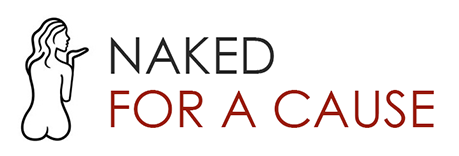Tags
Related Posts
Share This
Exploring Acupuncture for Anxiety through the Lens of Chinese Medicine
In the bustling landscape of modern life, anxiety has become a prevalent companion for many, casting shadows over mental well-being. As individuals seek holistic approaches to navigate the complexities of anxiety, Traditional Chinese Medicine (TCM), with its ancient wisdom, offers a guiding light. Acupuncture, a cornerstone of TCM, emerges as a gentle yet powerful ally in the quest for emotional balance. In this exploration, we delve into the principles of acupuncture for anxiety in Melbourne through the lens of Chinese medicine, unraveling the threads of harmony woven within this holistic approach.

Understanding Anxiety in Traditional Chinese Medicine
In Traditional Chinese Medicine in Melbourne, anxiety is often viewed as a manifestation of imbalances in the body’s vital energy, known as Qi, and the interplay of Yin and Yang forces. When these forces are disrupted, it can lead to disharmony, affecting both physical and mental well-being.
The Art of Acupuncture: A Symphony of Balance
Qi Flow and Blockages
Acupuncture seeks to restore the smooth flow of Qi throughout the body. When Qi becomes blocked or stagnant, it can contribute to feelings of anxiety. Acupuncture points related to the nervous system and emotional well-being are targeted to release blockages and promote harmony.
Harmonizing Yin and Yang
Yin and Yang, the complementary forces in TCM, must be in balance for optimal health. Anxiety is often seen as an imbalance between these forces. Acupuncture works to harmonize Yin and Yang, bringing equilibrium to the body and mind.
Calming the Shen
In Chinese medicine, the Shen represents the mind or spirit. Imbalances in the Shen can manifest as anxiety. Acupuncture aims to calm the Shen, promoting a sense of tranquility and peace.
Regulating the Heart and Kidneys
TCM associates the heart and kidneys with emotional well-being. Acupuncture points related to these organs are often used to regulate emotions, alleviate anxiety, and foster a sense of grounding.
Embarking on the Acupuncture Journey for Anxiety
Holistic Assessment
Begin your acupuncture journey with a holistic assessment. Skilled practitioners will delve into your medical history, emotional state, and lifestyle to understand the root causes of your anxiety.
Tailored Treatment Plan
Based on the assessment, your acupuncturist will create a personalized treatment plan. This may involve specific acupuncture points, herbal remedies, dietary recommendations, and lifestyle modifications to address the unique aspects of your anxiety.
Needle Sensation and Qi Flow
Acupuncture involves the insertion of thin needles into specific points on the body. The sensation experienced during needling is often described as a dull ache or tingling, indicating the movement of Qi. This process contributes to the restoration of balance.
Consistent Sessions
Acupuncture is not a one-time solution. Consistent sessions are often recommended to achieve lasting results. The frequency and duration of treatment will depend on the severity of anxiety and individual response to acupuncture.
Chinese Herbal Medicine as a Complement
In addition to acupuncture, Chinese herbal medicine is often used to complement the treatment of anxiety. Herbal formulations tailored to the individual’s constitution and specific symptoms can enhance the overall efficacy of the treatment.
Conclusion
As anxiety weaves its intricate patterns in the tapestry of modern life, acupuncture, rooted in the wisdom of Traditional Chinese Medicine, stands as a beacon of balance and harmony. Through the gentle insertion of needles and the restoration of Qi flow, acupuncture addresses the underlying imbalances that contribute to anxiety. In the embrace of this ancient healing art, may individuals in search of tranquility find solace, and may the symphony of balance resonate within, bringing a sense of calm and well-being.





